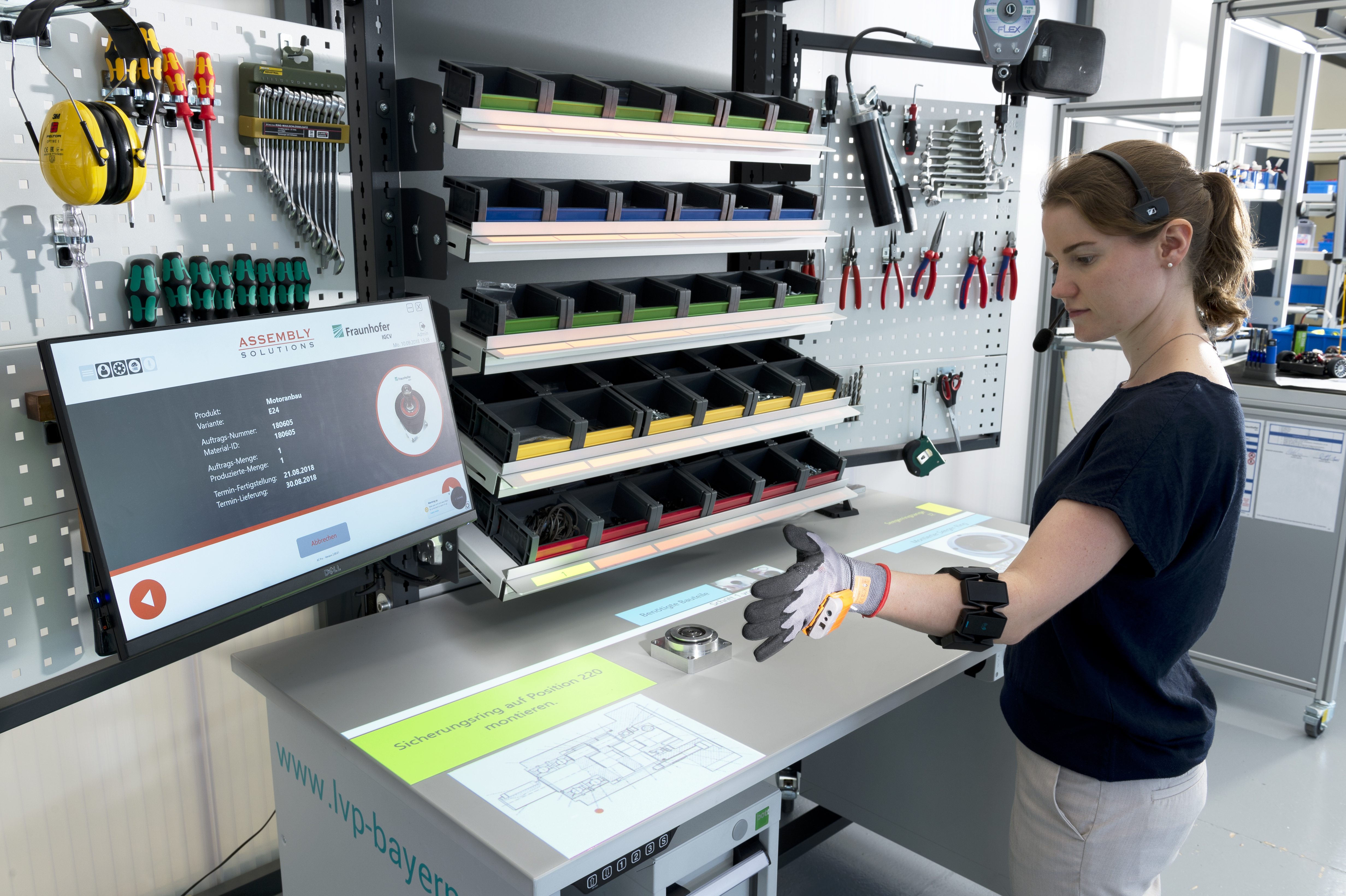SynDiQuAss - »Synchronisation of digitalisation, quality assurance and assistance systems at workplaces with a low level of automation«
What will the workplace of the future look like? How can assistance systems support employees in production and how can production processes be made more flexible and innovative?
Over the past three years, the joint project SynDiQuAss - »Synchronisation of digitalisation, quality assurance and assistance systems at workplaces with a low level of automation« - has been dealing with these and other questions.
The goal: to integrate digitalisation, assistance systems and quality assurance into a system that networks workplaces, factory planning and quality data for needs-based process control and thus makes everyday work easier and more progressive.
Together with Augsburg University of Applied Sciences and other project partners, Fraunhofer IGCV has set itself this goal in recent years.
Since 2017, funding amounting to 1.7 million euros from the Federal Ministry of Education and Research and the European Social Fund has been available for the research - and the results are impressive.
